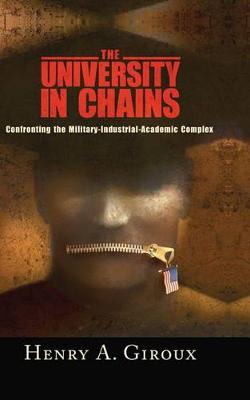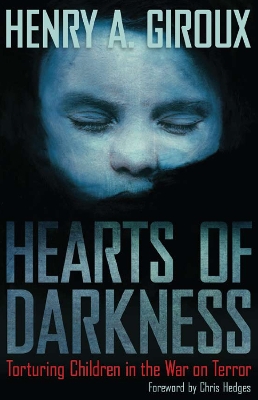Radical Imagination
5 total works
President Eisenhower originally included 'academic' in the draft of his landmark, oft-quoted speech on the military-industrial-complex. Giroux tells why Eisenhower saw the academy as part of the famous complex - and how his warning was vitally prescient for 21st-century America. Giroux details the sweeping post-9/11 assault being waged on the academy by militarization, corporatization, and right-wing fundamentalists who increasingly view critical thought itself as a threat to the dominant political order. Giroux argues that the university has become a handmaiden of the Pentagon and corporate interests, it has lost its claim to independence and critical learning and has compromised its role as a democratic public sphere. And yet, in spite of its present embattled status and the inroads made by corporate power, the defense industries, and the right wing extremists, Giroux defends the university as one of the few public spaces left capable of raising important questions and educating students to be critical and engaged agents. He concludes by making a strong case for reclaiming it as a democratic public sphere.
As the new administration moved beyond its first year in office, Obama spolitics of hope increasingly has been transformed into a politics of accommodation. To many of his supporters, his quest for pragmatism and realism has become a weakness rather than a strength. By focusing on those areas where Obama grounded his own sense of possibility, Giroux critically investigates the well-being and future of young people, including the necessity to overcome racial injustices, the importance of abiding by the promise of a democracy to come, and the indisputable value of education in democracy. Giroux shows why considerations provide the ethical and political foundations for enabling hope to live up to its promises, while making civic responsibility and education central to a movement that takes democracy seriously."
Prominent social critic Henry Giroux explores how new forms of media are challenging the very nature of politics in his most poignant and striking book to date.The emergence of the spectacle of terror as a new form of politics raises important questions about how fear and anxiety can be marketed, how terrorism can be used to recruit people in support of authoritarian causes, and how the spectacle of terrorism works in an age of injustices, deep insecurities, disembodied social relations, fragmented communities, and a growing militarization of everyday life. At the same time, the new media such as the Internet, digital camcorders, and cell phones can be used to energize sites of resistance, provide alternative public spheres, pluralize political struggles, and expand rather than close down democratic relations. Giroux considers what conditions and changes are necessary to reinvigorate democracy in light of these new challenges.
In his newest provocative book, prominent social critic Henry A. Giroux shows how the tragedy and suffering in the aftermath of Hurricane Katrina signals a much larger crisis in the United States one that threatens the very nature of individual freedom and inclusive democracy. This crisis extends far beyond matters of leadership, governance, or the Bush administration. It is a crisis that strikes at the very heart of democracy and must be understood within a broader set of antidemocratic forces that not only made the socialdisaster underlying Katrina possible, but also contribute to an emerging authoritarianism in the United States. Questions regarding who is going to die and who is going to live are driving a new form of authoritarianism in the United States. Within this form of dirty democracy a new and more insidious set of forces embedded in our global economy have largely given up on the sanctity of human life, rendering some groups as disposable and privileging others. Giroux offers up a vision of hope that creates the conditions for multiple collective and global struggles that refuse to use politics as an act of war and markets as the measure of democracy. Making human beings superfluous is the essence of totalitarianism, and democracy is the antidote in urgent need of being reclaimed. Katrina will keep the hope of such a struggle alive because for many of us the images of those floating bodies serve as a desperate reminder of what it means when justice, as the lifeblood of democracy, becomes cold and indifferent."
George W. Bush's war on terror defended torture as a matter of official policy and furthered an already emergent culture of cruelty. As torture became normalized in the Bush era, it not only corrupted American ideals and political culture, it also passed over to the dark side in sanctioning the unimaginable and unspeakable: the torture of children. This shocking book documents cases of child torture by American military personnel, many of which have never been reported in the media. Giroux raises serious challenges the Obama administration must address in light of this shameful period in American history if it wants to restore democratic culture. Going further than simply blaming those at the top, Hearts of Darkness also raises questions about the collusion of the media, educators, the criminal justice system and other institutions that have enabled a culture that accepts the torture of children.


